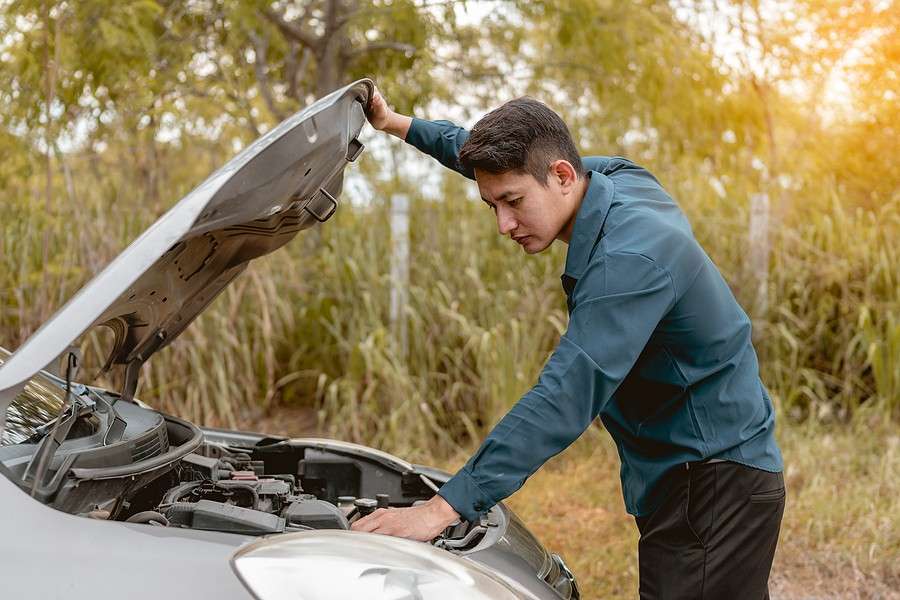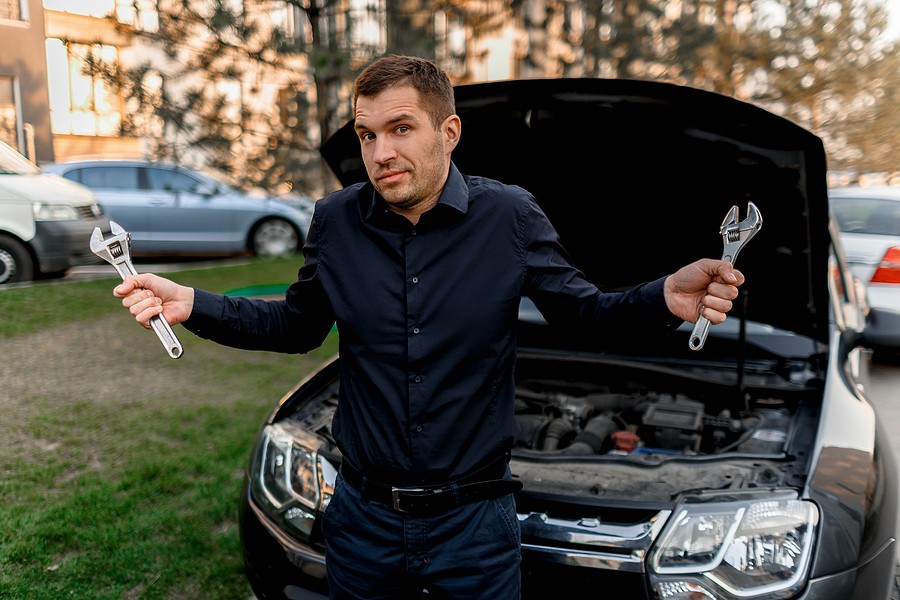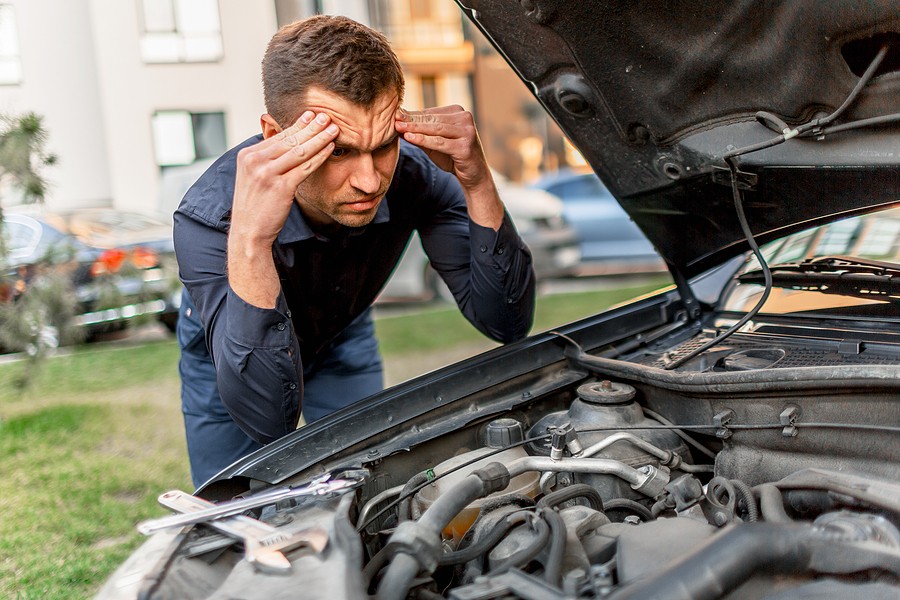If you're planning to trade in your nonworking car, here's a step-by-step process to help you:
- Understand the trade-in process
- Differentiate between the trade-in value and the market value
- Determine whether the dealership accepts your nonworking car or not
- Determine how much you'll get paid for your car
- Decide whether to fix your not working car or not
- Address minor issues in your vehicle
Trading in your car is a great idea for someone looking to sell the vehicle fast without dealing with any hassle, especially related to the paperwork. However, you have to be careful about how the process is done, and you need to understand the ins and outs of the process so they don't get into rabbit holes.
While trading in your car is not a complicated job, things get slightly complicated if you're planning to trade in a car that needs work. For example, you might ask yourself how to trade in your nonworking car. Or whether you should fix it before training it or bring it in as is to the dealership.
This article provides a a detailed guide to help you answer how to trade in your nonworking car. It walks you through all the details in the process and helps you get the best deal.
How to trade in your nonworking car?
If you're planning to trade in a nonworking car, here's how it's done:
1. Understand the trade-in process
Before you dive into the details about how to trade your nonworking car, you must have a general understanding of the overall process of the trade-ins. So many people have not done it before, so it gets a bit challenging if it's the first time.
The trade-in process refers to the concept where you give your vehicle to the dealership, and they give you credit in exchange. You can then use this credit to purchase your brand-new vehicle of interest.
For instance, if you're planning to purchase a vehicle worth $20,000 and your older car is worth $5000 per the evaluation of the dealership, then you can use this $5000 wards the $20,000 and drop the down payment and also reduce the monthly payments.
Tradings are a great idea for those who don't want to deal with any challenges and don't want to waste time trying to find a potential buyer for their old cars. This way, you can eliminate the old vehicle while purchasing your new one.

2. Differentiate between the trade-in value and the cars market value
There is a common misconception that whatever the dealership provides euro flex, the vehicle's market value. However, that's not the case. Dealerships typically underestimate your car's value because they consider the fact that they have to pay for lots and employees, which you won't deal with when selling your car separately on classified websites.
However, while the value they will provide you is much lower, consider the convenience and process and how it will take you to sell the vehicle separately and even look for a potential private buyer.
Remember that there might be a significant difference between the trade-in value and the car's market value. That's where you have to be careful about your final decision and make a detailed comparison between the value you might get when selling your vehicle on your own and the value the dealership is providing you.

3. Determine whether the dealership accepts your nonworking car or not
While most dealerships accept nonworking vehicles, you must be careful about whether the dealership will accept your car. The situation is very different and will be different on a case-by-case basis.
The dealership will research and determine whether they're interested in adding your vehicle to their inventory. They will also determine the repair cost for your car to see if it's worth their time, effort, and investment trying to fix this vehicle and still make a profit.
The one thing to remember is that dealerships never accept vehicles with salvage titles. This is because this title indicates that the vehicle was involved in significant damage and might be beyond repair, which is a huge risk for them to take.
Thus, if you know that your car has a salvage title, it might not be worth your time and effort to try to convince all ships except your car because they won't accept it they won't accept it—consider other options, including private buyers, cash-for-cars companies, etc.

4. Determine how much you'll get paid for your nonworking car
Once you confirm that the dealership is OK with buying your vehicle, the next step is getting an idea of how much they're willing to pay you. Remember that it will differ from a dealership, which is something to remember before making a final decision.
Dealership salespeople are very smart, and they won't lose money. In other words, they will do their rights calculations to determine how much your vehicle is worth, considering how much they must pay to fix it. This process is referred to as vehicle assessment.
During the vehicle assessment process, the dealership will closely examine your car and list all potential problems, including minor repairs. Many people think that the dealership will only focus on major things like the issues associated with the engine or transmission; however, they will go into the details, starting from the small dents and scratches to the issues with upholstery.
The more problems your car has, the lower your offer will be, and that's where you have to be careful about when you can accept reducing the vehicle value because, at some point, you might not feel it will be worth it.
For example, if your nonworking car is worth $5000, and the dealership feels it needs about $2000 for repair, they will only offer you $3000. Whether this $3000 is something you are convinced about or not will be your call.

5. Decide whether to fix your nonworking car or not
Once you get the proposed offer from the dealership, you'll get to the point where you must evaluate the situation carefully. Often, car owners think that the dealership's offers are not good enough, and that's where they have to start thinking about whether they should fix the vehicle and then trade it in after a.
To determine whether you should fix her car, you have to do the right math and see if it will be worth the investment. In other words, if you feel that repair costs are close to the vehicle value, that won't be worth it; in this case, you should either continue with the dealership or determine other alternatives for selling your car separately.

6. Address minor issues in your car
Regardless of whether you should fix your vehicle, you should take care of minor issues that might boost your chances of receiving a much higher offer from the dealership. However, these problems and issues will not be significant and might not cost you much.
For example, if you know that your vehicle needs detailed cleaning, you should do so because once the dealership salesperson or mechanic checks on your car and find it that's not taken care of, they might feel that what's under the hood is not also have been taken care of.
You also might want to spend some minor investments in replacing small bulbs because it makes a difference in how your vehicle looks and helps boost your chances of receiving a much higher offer from your dealership.
You also want to invest in topping off the fluids, including the coolants, the motor oil, etcetera. We also can probably spend the time replacing the windshield or adding windshield fluid if needed.
You have to decide when it's the point where you shouldn't put more investment in this vehicle because it might get to the point where the investment is not worth it and it's not adding much value to your car. But, again, you can discuss this with your mechanic to help you understand when to stop repairing these minor problems.

Final thoughts
Trading a car is a great idea for those looking to get rid of their vehicles and purchase new ones without hassle. The process can be done simultaneously by buying your new car, which is very convenient.
However, many buyers might not have a good idea about how the trade didn't work, and many might wonder how to trade in your nonworking car, especially those dealing with major car problems.
The article provided a detailed summary of how the process is done, and it walked you through all you need to remember about when to continue the trade-in and when you should think twice before doing so.'
If you prefer to sell your nonworking car separately, Cash Cars Buyer can always help you. Call our team at 773-791-4363!



